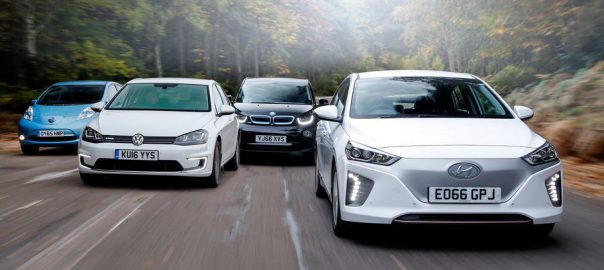Car tax is set to be overhauled this April, so what’s changing?
From 1 April 2017 the way car tax is figured out is set to change for any vehicles registered after this date. The change could be seen as good news for owners of electric or hybrid vehicles.
How will the new tax rates affect me?
While measures are being put in place to curb congestion and reduce air pollution with the investment of millions in congestion-cutting technology, could increasing the number of electric cars on the road be the solution?
The government seems to think so as it is introducing a change to the road tax system.
As it stands all vehicles, except for pedal bicycles, are subject to Vehicle Excise Duty (VED), also known as road tax. It is split into several bands, based on CO2 emissions but as of 1 April, all electric vehicles will move into band A, which means drivers of electric vehicles will no longer pay road tax.
If this news has you thinking electric cars could be for you but aren’t quite sure which kind to buy, it’s worth noting plug-in hybrids are also exempt, but not pure hybrids. This is because they still produce emissions, and only vehicles that produce either no emissions or emissions less than 100g/km are exempt from VED.
Further changes to the vehicle tax rates will take effect in April. The tax payable on a new vehicle for the first twelve months will be calculated based on its emissions – the higher the emissions, the higher the tax. This only applies to new vehicles registered after 1 April 2017. All vehicles registered between March 2001 and April 2017 will pay tax based on the old rates.
How can I save money on an electric car?
Buying an electric car can be quite expensive – something which will hopefully change as their popularity increases – but the good news is the plug-in vehicle grant has been extended to March 2018. This gives motorists money towards the cost of an electric vehicle, up to 35% of the cost of the vehicle. The maximum amount given is £4,500.
What it means for owners of diesel and petrol vehicles
It may still be expensive to purchase an electric vehicle, but they are expected to become cheaper over time. According to predictions by analysts at Bloomsberg New Energy Finance, the drop in battery costs could result in them being cheaper overall than petrol or diesel models by as early as 2022. Being exempt from VED will certainly contribute to this.
If you’re looking to buy a petrol or diesel vehicle, you could start paying up to £450 per month in tax. New vehicles worth over £40,000 will be taxed at the new rates for the first twelve months, after which, petrol and diesel owners will have to pay an additional rate of up to £310 per month.
Expensive as electric vehicles can be, their owners could potentially save money in the long run. Not only will you no longer have to pay expensive fuel prices, but you may well pay absolutely nothing in road tax and could qualify for the plug-in vehicle grant.
Source: Admiral Insurance

